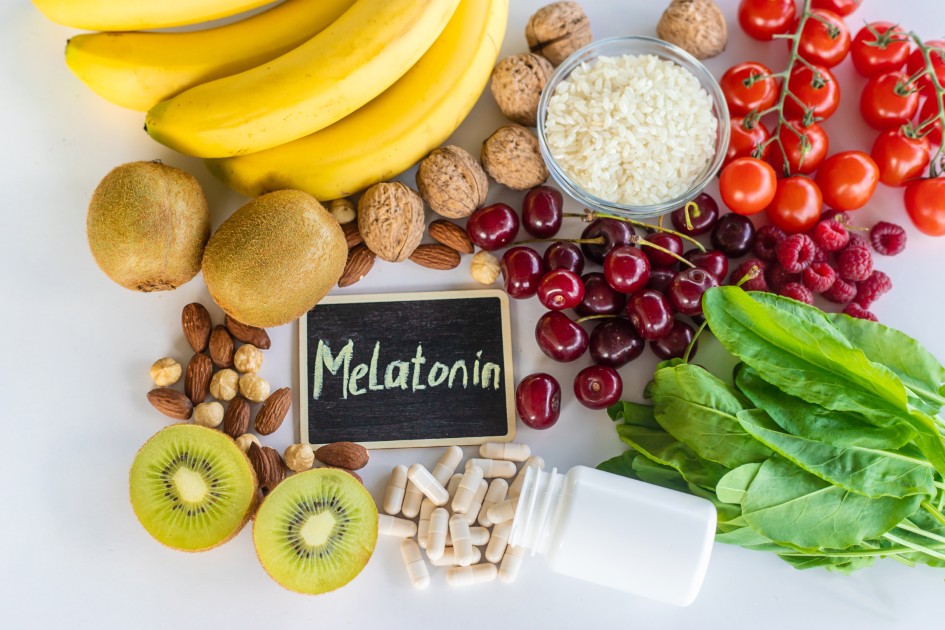Melatonin supplements are popular among athletes, biohackers, and health-conscious individuals who seek better sleep and faster recovery. The hormone is often seen as a harmless, “natural” remedy – but is it truly risk-free? New research suggests that long-term melatonin use could carry hidden dangers for your heart, challenging the notion that this common sleep aid is completely safe.
In this article, we break down the latest science on melatonin’s impact on the heart, what it means for your fitness and health, and how to improve your sleep through safer alternatives.
Melatonin: The Go-To Sleep Aid for Athletes and Biohackers
Melatonin is a hormone that helps regulate our sleep-wake cycle, and its supplement form has exploded in popularity among fitness communities. Why do so many athletes and biohackers swear by melatonin? It helps them fall asleep faster, beat jet lag, and improve overnight recovery after intense training. Widely available without a prescription, melatonin use has surged in recent years, nccih.nih.gov, as more people embrace it as a “natural” remedy for sleeplessness.
Because it’s a hormone our bodies produce naturally, many assume supplementing it has no downside. Short-term use does appear safe for most people, with only mild side effects like drowsiness or headache reported. However, “natural” doesn’t always mean “risk-free”– especially if you take it every night for months on end. Until recently, we had almost no data on melatonin’s long-term effects on the heart.
New Research Links Long-Term Melatonin Use to Heart Risk
A large new study presented at the American Heart Association’s 2025 conference found a surprising link between long-term melatonin use and heart health problems, news-medical.net. Researchers reviewed 5 years of health data for over 130,000 adults. About half had used melatonin regularly for a year or more, while the rest never took melatonin.
Long-term melatonin users had nearly double the incidence of heart failure compared to non-users (4.6% of melatonin users versus 2.7% of non-users). Melatonin users were also 3.5 times more likely to be hospitalized for heart failure, and nearly twice as likely to die from any cause as those who didn’t take melatonin.
Why Could Melatonin Affect Heart Health?
It may seem counterintuitive that a “natural” sleep aid could harm your heart. Yet we don’t know if melatonin directly causes these issues. Experts stress that the study shows a correlation, not proof of causation, sciencemediacentre.es. It’s possible that people who relied on melatonin long-term had other health factors that increased their risk. And because melatonin acts on many systems in the body, taking it chronically might have unexpected cardiovascular effects. We simply haven’t studied prolonged melatonin use enough to know for sure, which makes these findings an important warning sign.
Expert Insights: Should You Be Worried?
Experts advise caution, not panic. Remember, this was an observational study, so it can’t prove melatonin caused the heart issues. Some “non-users” might actually have been taking melatonin on their own, skewing the comparison. So while the findings are provocative, washingtonpost.com, they aren’t definitive. More research is needed to confirm any cause-and-effect link. Still, it’s a wake-up call that melatonin is a hormone with real effects, not just a benign sleep aid. If you’ve been taking it nightly, consider re-evaluating that habit or discussing it with a doctor in light of these results.
Safe Sleep Strategies: Smart Alternatives to Melatonin
The good news is you have plenty of options to improve your sleep quality without relying on melatonin. Here are some science-backed strategies to help you sleep better and support your health:
- Optimize Sleep Hygiene: Maintain a consistent sleep schedule, keep your bedroom dark and cool, and wind down with a relaxing routine (like reading) instead of screen time in the last hour before bed. Reducing blue light exposure in the evening – for example, by dimming your devices or wearing blue-light blocking glasses – helps your body naturally produce melatonin for sleep.
- Consider Magnesium: Magnesium is involved in hundreds of bodily processes, including sleep regulation sleepfoundation.org. Some studies suggest magnesium supplementation can improve sleep quality, especially if you’re deficient. It’s generally safe at recommended doses. You can also boost your magnesium by eating leafy greens, nuts, and whole grains – a win-win for nutrition and sleep.
- Tart Cherry Juice: Tart cherries naturally contain melatonin. Drinking tart cherry juice in the evening has been linked to improved sleep duration and quality in multiple studies. It’s also rich in antioxidants that reduce inflammation and aid muscle recovery – a nice bonus for athletes. A glass of tart cherry juice can be a tasty alternative to a melatonin pill.
- Cognitive Behavioral Therapy for Insomnia (CBT-I): CBT-I is considered the gold-standard treatment for persistent insomnia. It helps you retrain your sleep habits. Major guidelines even recommend CBT-I as the first-line insomnia treatment over medication, nccih.nih.gov, and it often leads to lasting improvements. Working with a sleep therapist or using an online CBT-I program can guide you through this highly effective approach.
The Bottom Line
Melatonin can be useful for short-term sleep issues (like jet lag or occasional sleepless nights). But the latest research is a caution flag: using melatonin every night long-term might carry hidden risks for your heart, news-medical.net. Even “natural” supplements can have powerful effects on the body, so use them sparingly.
The good news is that you have many other ways to achieve quality sleep. By prioritizing healthy sleep habits and trying safer alternatives, you can rest well without a nightly pill. If you do choose to use melatonin, stick to the lowest effective dose for the shortest time, and consult your doctor—especially if you have any heart concerns.
Your heart works hard to fuel your athletic performance and daily life. Making informed choices about sleep aids is another way to protect your heart.
Sweet dreams and strong hearts!






